Only hours after the Japanese attack on the American naval base at Pearl Harbour, Japanese forces launched an attack against the British colony of Hong Kong.
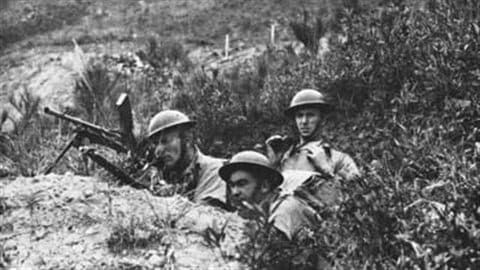
As a declaration of war had not been made, the attack was a violation of international law.
The colony garrison, about 12,000 British and Indian troops, had only recently been reinforced with some 2000 Canadian soldiers, also garrison soldiers
These mostly inexperienced soldiers suddenly found themselves facing a huge force of four times as many experienced and battle-hardened Japanese troops.
In spite of that, for almost two weeks the British Colony of Hong Kong had put up a fierce defence against air and ground attacks augmented by a Japanese naval force.
On December 18th, the Japanese had surrounded a Salesian Mission being used as an advanced dressing station. With no option, Canadian Captain Martin Banfill surrendered the station. The Japanese then murdered almost all the men.
By December 20th the Japanese had forced the defenders onto half the island, and had captured the island’s water supplies.
On the morning of the 25th, the Japanese entered the British Field hospital, massacring patients and male staff, and raping and murdering nurses.
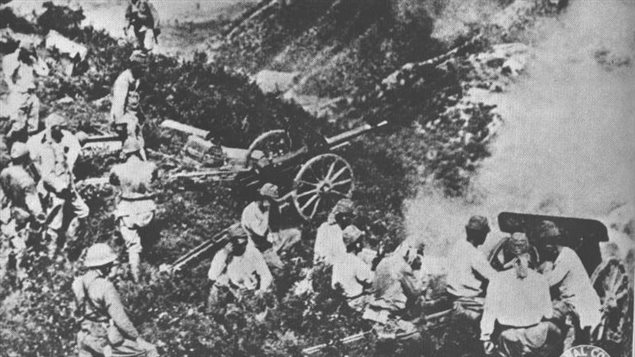
By the afternoon, with ammunition almost gone, little to no water, and against a huge invading force, the island was surrendered.
Of the Canadian British and Indian survivors, many hundreds would die in the barbaric treatment in Japanese prison and labour camps.
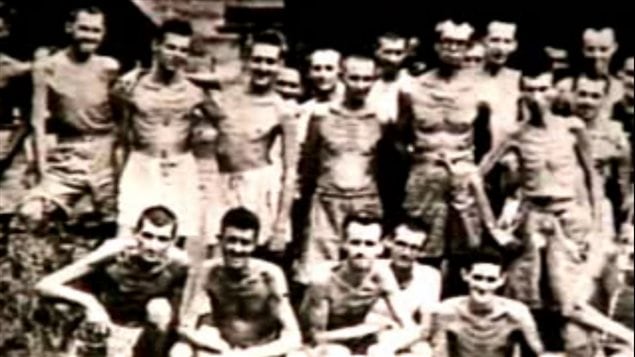
Of the 1,975 Canadians who were sent to Hong Kong, 550 never returned.
For decades Canadian survivors fought for compensation from Japan for their slave labour, which Japan has never paid.
On December 11, 1998, the Canadian government then stepped in to offer $24,000 each to the Hong Kong vets or their widows.
Many vets had mixed feelings saying Japan should be the one to pay compensation, not Canadian taxpayers.
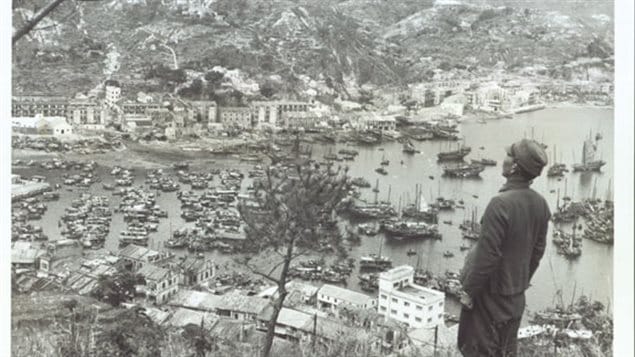
Only after many decades did Japan finally offer an apology to Canadians in 2011 for the barbaric treatment they had endured. Hong Kong veterans reluctantly accepted the apology which, according the the War Amps was not particularly sincere, “Japan has offered forms of contrition, but of a general nature designed to enhance political relations, and not meant to admit openly to the maltreatment PoWs received at their hands.”
War Amps statement
OTTAWA, December 8, 2011 — The War Amps of Canada, which stood shoulder to shoulder with Canada’s Hong Kong Veterans in seeking redress and recognition, is pleased with the long-sought apology given Thursday in Tokyo to these Veterans by Japan.
The apology was accepted by the Hong Kong Veterans of Canada on behalf of all Canadian military personnel who were prisoners of war in the Far East during the Second World War. Representatives of the group were in Japan for a commemorative visit during what marks the 70th anniversary of the Battle of Hong Kong.
For many years following the end of the Second World War, the Hong Kong Veterans, in conjunction with The War Amps, had pursued financial compensation and an appropriate apology from the Japanese for the abuse and violations of human rights meted out by the Japanese to Canadian PoWs.Compensation from the Canadian Government of $24,000 for each surviving Hong Kong Veteran or their widow was announced in 1998, but the apology remained outstanding
“Time was unfortunately of the essence in this case, as there are only 59 prisoners of war surviving, the youngest being 89-years-old,” said Brian Forbes, Association Solicitor for The War Amps. “It was critical that this apology be rendered before there were none left to receive it.”
In the past two years, Japan has given an apology to other countries, including former United States and United Kingdom PoWs, during recent visits to Japan. Over the years since the war, Japan has offered forms of contrition, but of a general nature designed to enhance political relations, and not meant to admit openly to the maltreatment PoWs received at their hands.
Mr. Forbes noted that in what has been exposed as “grave breaches” of the Geneva Convention, the PoWs received a starvation diet, medical supplies were withheld, and all prisoners were forced into slave labour to receive daily food rations with a “no work, no food” policy.
“Many PoWs died in the Japanese camps and the greater majority suffered severe disabilities which impacted their entire lives. Our joint initiative led to the UN Human Rights Commission ruling brought down in 1987, citing the Japanese for systemic violations of human rights and maltreatment,” he said.
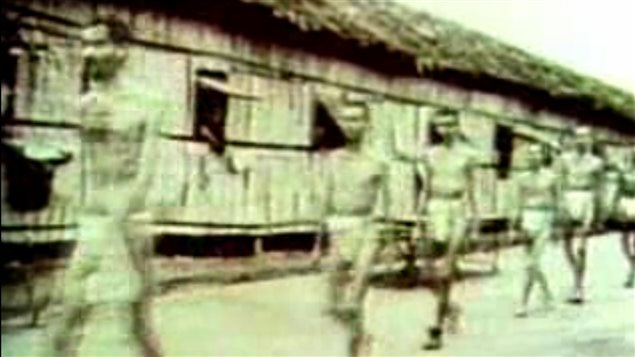






For reasons beyond our control, and for an undetermined period of time, our comment section is now closed. However, our social networks remain open to your contributions.